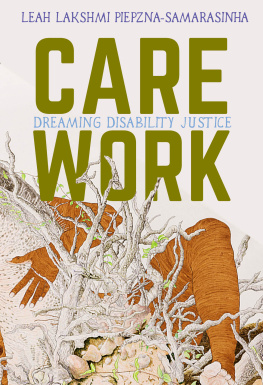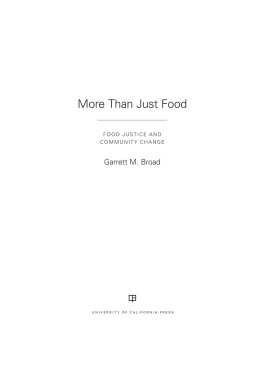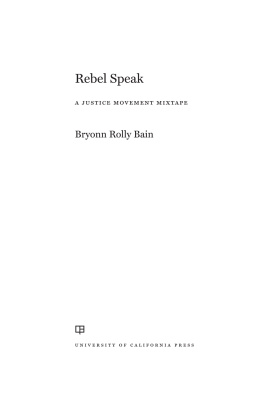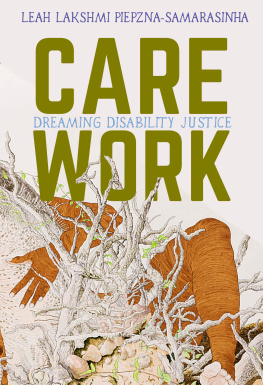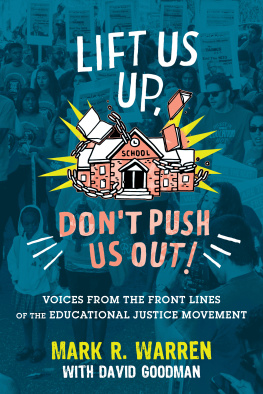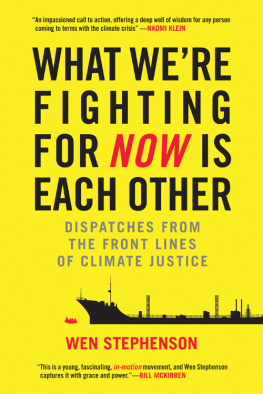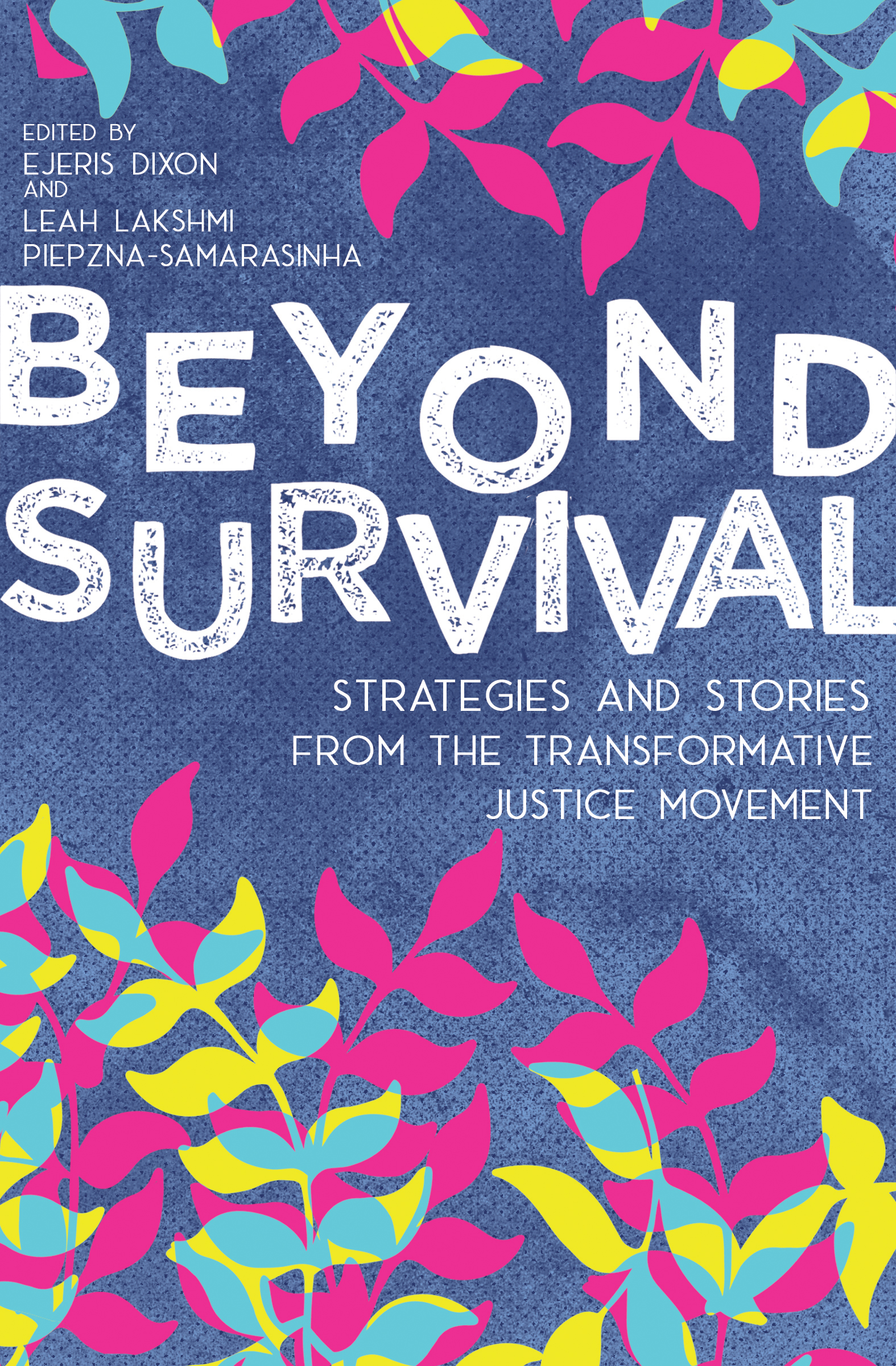Dedication
To the ones who lived, the ones who didnt, and the future we are building for all of us
Foreword
Alexis Pauline Gumbs
I love the word survival. It sounds to me like a promise.
Audre Lorde
Freedom is not a secret. Its a practice.
Alexis Pauline Gumbs
Beyond Survival. The title is poetic. Recursive. Survival already means to live beyond. Beyond what? Beyond disasters, systemic and interpersonal. Beyond the halted breathing of our ancestors. Beyond yesterday. And five minutes ago. Beyond that. The change-shapers and community-builders gathered together in this book are all visionaries. But thats not it. This book puts the be in beyond.
This book, encyclopedic yet inevitably incomplete because it seeks to document generations of practice, is one we will continue to reference for a long time in order to be beyond the repetitive violence of our current society, the violence we reproduce by our harm of each other and our denial of harm. So before you start using this book you must already know: You have survived. Numerous disastrous harms that could have destroyed you did not quite destroy you. You live. Beyond that, you must also acknowledge that the relationships, organizations, and spaces you have moved through have survived you , a person like other people, shaped by systems of harm. Breathe on that.
This is not a guidebook on how to be harmless.
This is not a glossary of words to prove you re down.
This is not a boilerplate for your organizations ne xt grant.
This is bey ond that.
This book does more than document a movement that is still moving. It seeks to accompany you and us on a journey beyond what we can imagine right now. It promises to be with you when you intentionally or unintentionally harm one or many people again. When your old hurts make it feel impossible to be in community. When conflicts we thought we resolved show up again. It acknowledges that there is no way to beyond bu t through.
This is a generous text, created by people who imagine that a more ethical and loving world can emerge in the middle of the worst muck of racialized, ableist heterocapital. The primary offering here is a spa ce to be.
Be here.
Be all over the place.
Be messy.
Be wrong.
Be bold in your ho pefulness.
Be confused in c ommunity.
Be reaching past isolation.
Be part of the problem.
Be hungry for after.
Be helpful in t he midst.
Be so early in the process.
Be broken b y belief.
Be bolstered by brave comrades.
Be unbelievably unready.
Be alive.
Let this book be with you, like air is with you on a screaming planet. Not clean, but necessary. Not comfortable, but supportive. Let this book be with you like our ancestors are with us, not perfect, but instructive. Not finished, but full. Let this book be with you like I am with you. Curious and unrealistic, like you are with yourself. Problematic and prophetic and possible. Eternally available for transformation based on your still having something to learn and to teach us.
I am grateful to Ejeris and Leah for holding this project like they have held our communities, with a femme fierceness and provocative honesty that turns their own lessons into shareable fire. Their faith in this work and their diligent practice have retaught my breathing into safer and safer scales. I am grateful to you for your vulnerable presence. For your healing and opening heart . Beyond.
This reflection was cut from an early draft of Eye to Eye: Black Women, Hatred and Anger, by Audre Lorde (Audre Lorde Papers, Spelman College Archive).
Introduction
Ejeris Dixon and Leah Lakshmi Piepzna-Samarasinha
How and Why We Came to This Project
Leah: It was 2014, 2015, 2016. The Revolution Starts at Home: Confronting Intimate Violence in Activist Communities the zine I coedited with fellow activist-writers Ching-In Chen and Jai Dulani that turned into a mega-zine, and then turned into a book published by the longtime, much-lamented independent feminist of color South End Presswas back in print after South End went bust. I got messagesvia email, Instagram, and OKCupid DMs, from strangers and acquaintances on the street or at a queer of color performance nightthanking us for creating such a resource.
I was glad it was working for them. But I was also increasinglyflummoxed? We had come up with the idea for The Revolution Starts at Home in 2004. The zine first came out in 2008; the book came out in 2011. Twelve, thirteen, fourteen years later, perhaps twenty years since feminists of color most recently started talking about ways to deal with abuse and violence outside of the state or traditional antiviolence nonprofit structures, it was still the only book out there for people who were like, Something is happening and I dont want to call the cops, or cantwhat do I do?
And in those twenty years, the world has changed. We still live in a brutal white-supremacist settler ableist cis-sexist state. But twenty years ago, when my nonbinary of color, already-been-to-jail lover put me in a chokehold and I couldnt call the cops without being deported and risking them killing me, nobody, nobody was talking about how to address violence without the state. It felt hard enough to get other young Black, Indigenous, people of color (BIPOC) I was in movement organizing with to believe that yes, abuse happens here, and its real and not justified by oppression. Then, for the years that followed, getting other antiviolence workers at the crisis line where I worked to imagine nonstate approaches to partner abuse and sexual assault seemed like crazy talk. Getting any of this into the mainstream media was a wild dream. When we published The Revolution Starts at Home , our editor told us not to put transformative justice in the title because no one would know what it meant. But twenty years later, all those hundreds of workshops, attempted accountability processes, late-night conversations, rallies, action camps, huge heated Facebook fights, minizines about consent handed out in the club, rallies held after murders, community databases and Safe Neighborhood maps, Safer Relationship classes, and safety team trainings have paid off. The world is still messed up, but it is also d ifferent.
In my experience, the years from 2010 to 2012 were a tough time for transformative justice (TJ). I was bitter and so were a lot of people I knew. They had tried TJ and it hadnt worked, or it had been a huge disaster, or it left them with more questions than answers. Some people got into vigilantism, or talked about it anyway, because, hey, beating the shit out of someone has an impact you can see. Projects burnt out, and longtime organizers took long breaks from TJ work that often became p ermanent.
But at the same time we witnessed a rise in both reporting and activism around police and ICE violence and around stranger murders of BIPOC, especially Black and brown trans women, disabled people, and sex workers. With the rise of Black Lives Matter, the Movement for Black Lives, Idle No More, and organizing led by immigrant, Latinx, and other people of color to stop police and immigration violence, more and more people seemed to believe that prisons and police were socially destructive and unnecessary. I felt a turning point when I picked up a copy of Rolling Stone in 2014 and saw their article, Policing Is a Dirty Job, but Nobodys Gotta Do It: 6 Ideas for a Cop-Free World. Fifteen years after my partner put me in a chokehold and my comrades had no idea what to do, those wing-nut ideas were now highlighted in a mainstream, national magazine.


